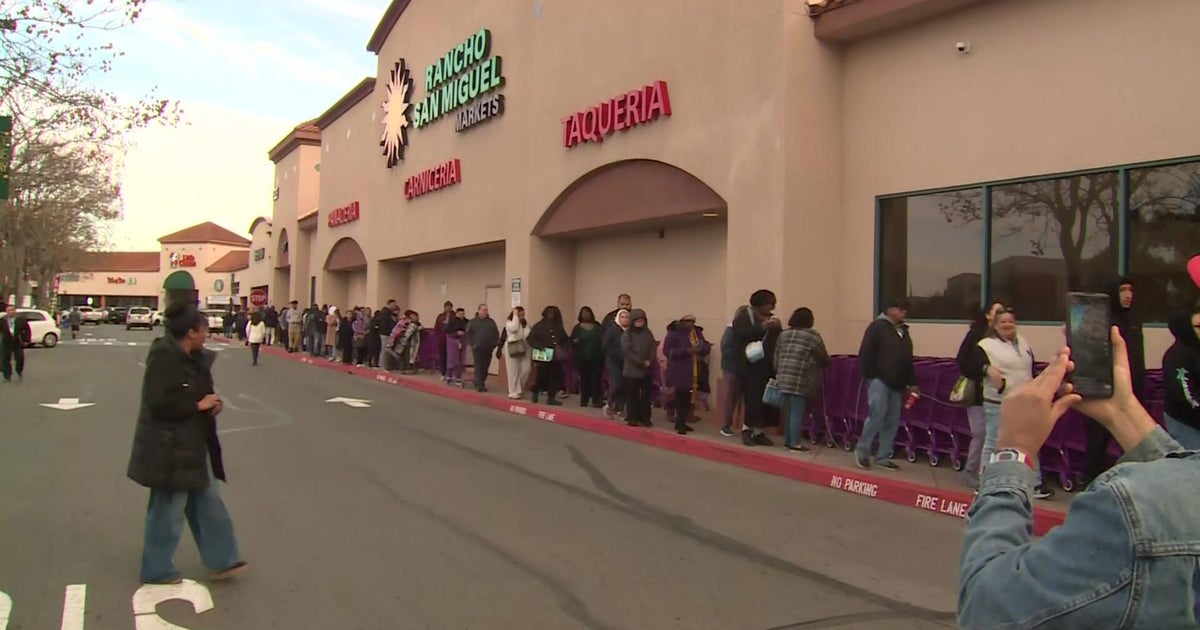Ann Arbor Firm's Analysis Shows Lower Sastisfaction With E-Commerce
ANN ARBOR (WWJ) -- Analysis released Wednesday by the Ann Arbor-based American Customer Satisfaction Index showed growing demand cut customer service levels and satisfaction with online retail in the 2013 holiday shopping season -- even as satisfaction rose for traditional brick-and-mortar retail.
Customer satisfaction improved for a third consecutive year for retail, according to the ACSI. The retail sector overall gained 1.7 percent to 77.9 on the ACSI's 100-point scale, boosted by higher customer satisfaction with specialty retail stores, supermarkets, drug stores, and gasoline service stations. A fourth traditional retail industry, department and discount stores, showed no change in customer satisfaction compared with a year ago.
Better customer service and widespread discounting among brick-and-mortar retailers more than offset a drop in customer satisfaction with Internet retail.
ACSI analysts said that with more shoppers choosing to purchase online, customer service may have hit a rough patch for web retailers during the 2013 holiday season. Although online sales growth for the period was weaker than expected, it far exceeded the uptick for traditional retail sales.
"A spate of last-minute holiday purchases online, combined with inclement weather, left some buyers disgruntled by delayed shipments," said Claes Fornell, ACSI chairman and founder, and professor at the University of Michigan, where the ACSI was developed. "That's the likely reason for Internet retail getting its lowest customer satisfaction benchmark in more than a decade. Nevertheless, diminished foot traffic at malls -- along with a surge in shopping via mobile phones and tablets -- indicates that consumers are increasingly embracing the advantages of online commerce."
Customers had a better shopping experience at specialty retailers during the 2013 holiday season, as the category gained 2.6 percent to an ACSI score of 80. Department and discount stores, on the other hand, remained flat at 77. Upscale Nordstrom led at 83 and discounter Wal-Mart had the lowest score, 71.
"For traditional retailers, discounting in and of itself is not necessarily associated with weak customer satisfaction, nor is high-end retailing a guarantee of the opposite," said David VanAmburg, ACSI director. "Discount chains Kohl's and Dollar General are both above average for customer satisfaction and are among the industry's top four, while Macy's, a traditional department store, comes in at the low end."
Several chains clustered in the ACSI range of 77 to 79, including J.C. Penney, Sears, Target and the aggregate of smaller stores. Compared with a year ago, JCP was down 2 percent, while Sears was up 3 percent. Macy's declined 3 percent to 76. Target suffered the greatest negative change, tumbling 5 percent to an ACSI benchmark of 77.
Among specialty retailers, including wholesale warehouse clubs, office supply chains or clothing stores, Costco regained the lead with a 1 percent uptick to 84, followed by Barnes & Noble (unchanged) and Lowe's (up 4 percent) at 82. Home Depot improved 3 percent to 79, but didn't catch Lowe's, which has held the customer satisfaction advantage in home improvement for more than a decade. At the low end, discounter TJX gained 4 percent to 79, pulling slightly ahead of both Gap and Best Buy (tied at 77).
The newly merged Office Depot and OfficeMax moved in opposite directions in the fourth quarter of 2013, as Office Depot slumped 6 percent to 79 and OfficeMax gained 5 percent to 82. Staples improved as well, up 3 percent to an ACSI benchmark of 81.
"Mergers often lead to problems with customer service and reduced customer satisfaction," says VanAmburg. "It is too early to tell how the larger company created from the Office Depot-OfficeMax merger will fare in 2014, or if Staples will emerge as the real winner among office supply chains in the battle for customer satisfaction supremacy."
Specialty retailers earn strong ratings for staff courtesy and for store layout and cleanliness (ACSI benchmarks of 81) compared with department and discount stores at 78. Specialty stores also do a better job of providing name-brand merchandise (81) than department and discount stores (77).
As for supermarkets, customers recognize good value for their money when buying groceries, and the industry inched up 1.3 percent to an ACSI score of 78. Among national and regional supermarket chains, Publix dominates for customer satisfaction with a stable benchmark of 86. Since the ACSI's inaugural year in 1994, Publix has remained No. 1 in its category -- a feat unmatched by any other company in the Index.
The aggregate of smaller grocery chains placed second at 81, followed closely by Kroger at 80. For the first time in six years, Whole Foods dropped in customer satisfaction, down 3 percent to 78. Winn-Dixie, Supervalu and Safeway were tightly grouped with scores of 76 to 77, while Wal-Mart lagged at 72.
Customer satisfaction with health and personal care (drug) stores was up 2.6 percent to an ACSI benchmark of 79. The improvement came from a large gain for smaller drug stores. Walgreens and CVS were tied at 76, while Rite Aid slid 4 percent to 74.
Customers gave high marks to both supermarkets and drug stores for locations and hours (ACSI benchmarks of 86 and 87, respectively). When asked about the quality of pharmacy services, shoppers give better marks to drug stores (84) than to supermarkets (80).
And now the bad news: Customer satisfaction with Internet retail plummeted 4.9 percent to an ACSI benchmark of 78, the lowest score since 2001. While results for the largest pure-play Internet retailers like Amazon.com and eBay vary, the decline is mostly attributable to a big drop for smaller sites, including both pure players and the websites of brick-and-mortar retailers. This group plunged 9 percent to the bottom of the industry at 75.
While higher demand at holiday crunch time may have posed a service challenge to some Web retailers, Amazon improved customer satisfaction by 4 percent to top the category at 88. Newegg was second at 83, while eBay dropped 4 percent to 80. Likewise, Overstock retreated 2 percent to 79. Netflix showed a large gain of 5 percent, recovering partially from a massive blow to customer satisfaction the company took in 2011. At 79, Netflix is gaining, but still not close to its peak ACSI result of 87 in 2009.
Shoppers find the checkout and payment processes of online retailers to be vastly superior to that of traditional department and discount stores, with an ACSI benchmark of 90, vs. 72 for traditional stores. (The score for specialty retails was 77.) Online sites also beat traditional stores by a wide margin for both merchandise selection and availability.
Customer satisfaction with online investment brokerage improved for a second year, up 2.6 percnet to an ACSI benchmark of 80 -- a record high that perhaps coincides with the stock market's all-time high. The category showed nearly across-the-board gains, with Charles Schwab vaulting into the lead, up 9 percent to 84. Fidelity rose 4 percent to 81, while the aggregate of smaller brokerages such as Vanguard and Scottrade gained 3 percent to 80. E*Trade was lower at 76, but showed a 4 percent increase. TD Ameritrade was the sole decliner, falling 4 percent to 74.
The full report is available for free download at www.theACSI.org.
The American Customer Satisfaction Index (ACSI) is a national economic indicator of customer evaluations of the quality of products and services available to household consumers in the United States. The ACSI uses data from interviews with roughly 70,000 customers annually as inputs to an econometric model for analyzing customer satisfaction with more than 230 companies in 43 industries and 10 economic sectors, as well as over 100 services, programs, and websites of federal government agencies.
ACSI data have proven to be strongly related to a number of essential indicators of micro and macroeconomic performance. For example, firms with higher levels of customer satisfaction tend to have higher earnings and stock returns relative to competitors. Stock portfolios based on companies that show strong performance in ACSI deliver excess returns in up markets as well as down markets. And, at the macro level, customer satisfaction has been shown to be predictive of both consumer spending and GDP growth.







